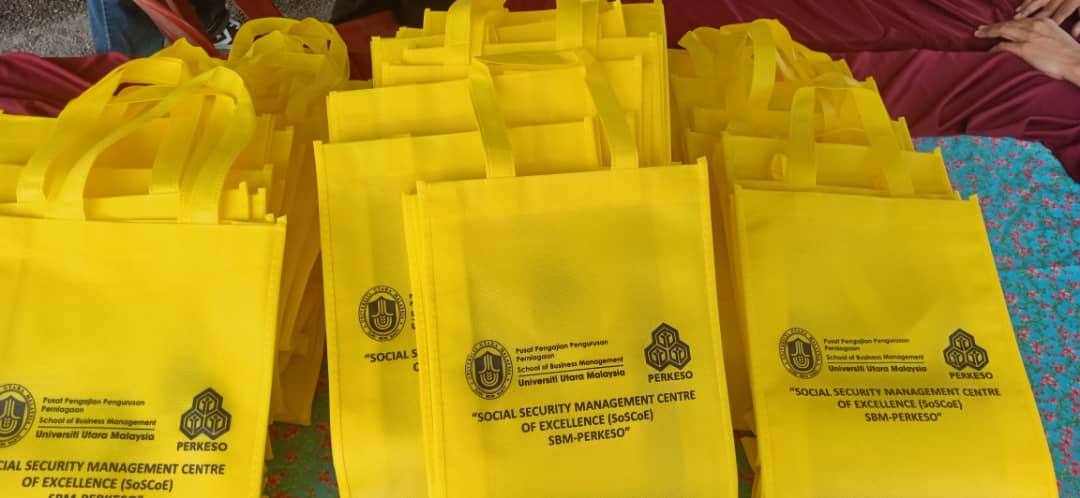Labu, Negeri Sembilan witnessed a remarkable event focused on workforce diversity and mental health, as the Social Security Management Centre of Excellence (SoSCoE) collaborated with students from the Occupational Health & Safety Management Science Program in organizing a transformative seminar.
Held at Dewan Orang Ramai Dato' Shahardin, Batu 8, Labu, Negeri Sembilan, on 26 November 2022, this event saw the active participation of esteemed individuals, including Dato' Haji Ismail Haji Ahmad, a member of the Labu State Legislative Assembly and Negeri Sembilan Exco.
The seminar, organized by the students enrolled in the BSMH5323 Occupational Psychosocial Issues and BSMH5063 Workforce Diversity Management Session A221 programs, based at UUM Sintok and UUM Kuala Lumpur Study Center Business Management, aimed to achieve several crucial objectives. Firstly, it sought to enhance knowledge and practices regarding occupational safety, health, and well-being issues. Secondly, it aimed to identify the measures necessary for employers and employees to address well-being issues at work, thus reducing mental, physical, and emotional challenges faced by employees. Lastly, the seminar aimed to foster cooperation and synergy between UUM residents and the local community.
The event commenced with an opening ceremony, graced by Dato' Haji Ismail Haji Ahmad, who delivered an inspiring address underscoring the importance of workforce diversity and mental health in driving individual and organizational success. His presence served as a testament to the significance of the seminar, which aimed to address critical issues affecting the well-being of the local workforce.
Throughout the seminar, a wide range of topics related to workforce diversity and mental health were covered, shedding light on the importance of inclusivity, acceptance, and support in the workplace. The sessions were led by renowned experts in the field, including academic scholars, occupational health professionals, and human resource practitioners. Their presentations delved into the various aspects of workforce diversity, such as gender, ethnicity, age, and disability, while highlighting the positive impact of embracing diversity on organizational performance and employee well-being.
The seminar also explored psychosocial issues faced by employees, emphasizing the significance of mental health in the workplace. Attendees gained valuable insights into the causes and consequences of work-related stress, burnout, and other mental health challenges. Importantly, the seminar focused on practical solutions and improvement measures that employers and employees can implement to foster a healthier work environment, including stress management techniques, work-life balance initiatives, and support systems.
One of the highlights of the event was the incorporation of interactive workshops and group activities, which allowed participants to engage in practical exercises and discussions. These activities facilitated a deeper understanding of the concepts presented during the seminar and encouraged the sharing of experiences and best practices among attendees. The collaborative nature of the workshops created a supportive environment, fostering a sense of community and empowerment.
The seminar was not limited to theoretical knowledge and discussions. Recognizing the importance of community engagement, the event served as a bridge between UUM residents and the local community of Labu. Through shared experiences and open dialogues, participants had the opportunity to establish meaningful connections, promoting understanding, empathy, and collaboration between these two integral segments of society.
The closing ceremony of the seminar celebrated the successful realization of its objectives, acknowledging the tireless efforts of the organizing committee, speakers, and participants. The event's impact extended far beyond its duration, as attendees left equipped with newfound knowledge and practical strategies to address workforce diversity and mental health challenges in their respective organizations.






